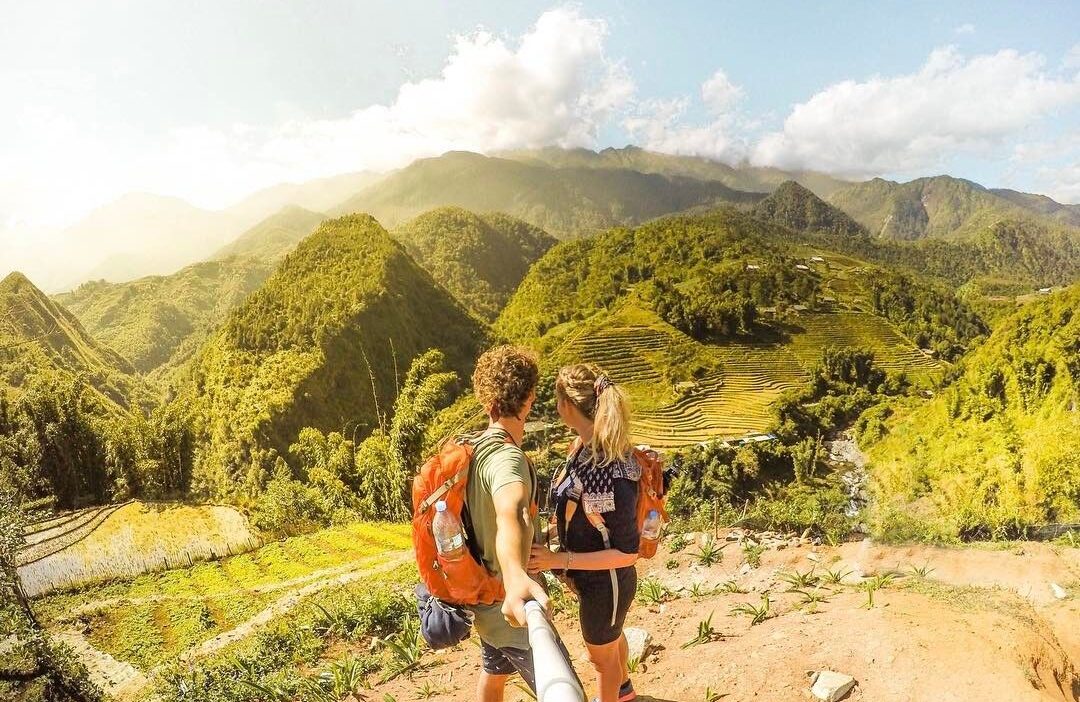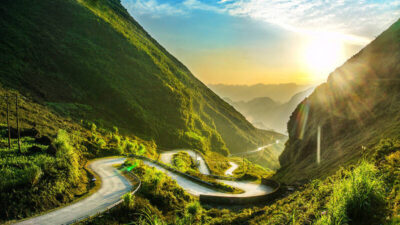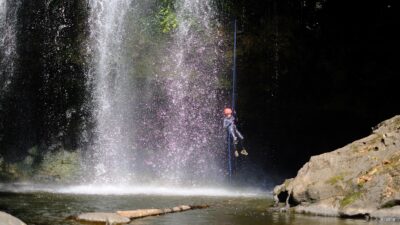If you’re looking to disconnect from the noise of city life and immerse yourself in nature, trekking in Sapa is one of the most rewarding experiences Southeast Asia has to offer. With its dramatic mountain landscapes, cascading rice terraces, remote ethnic minority villages, and cool, misty climate, Sapa is not just a destination—it’s a soulful journey.
Whether you’re a seasoned trekker or someone looking for a beginner-friendly hiking adventure, Sapa offers an incredible variety of trekking routes, from gentle day hikes through terraced valleys to multi-day treks deep into the Hoàng Liên Son mountain range.
In this guide, we’ll take a deep dive into what makes trekking in Sapa so special, explore a detailed itinerary through one of the region’s most enriching trails with, and share everything you need to know to plan your perfect hiking holiday in northern Vietnam.
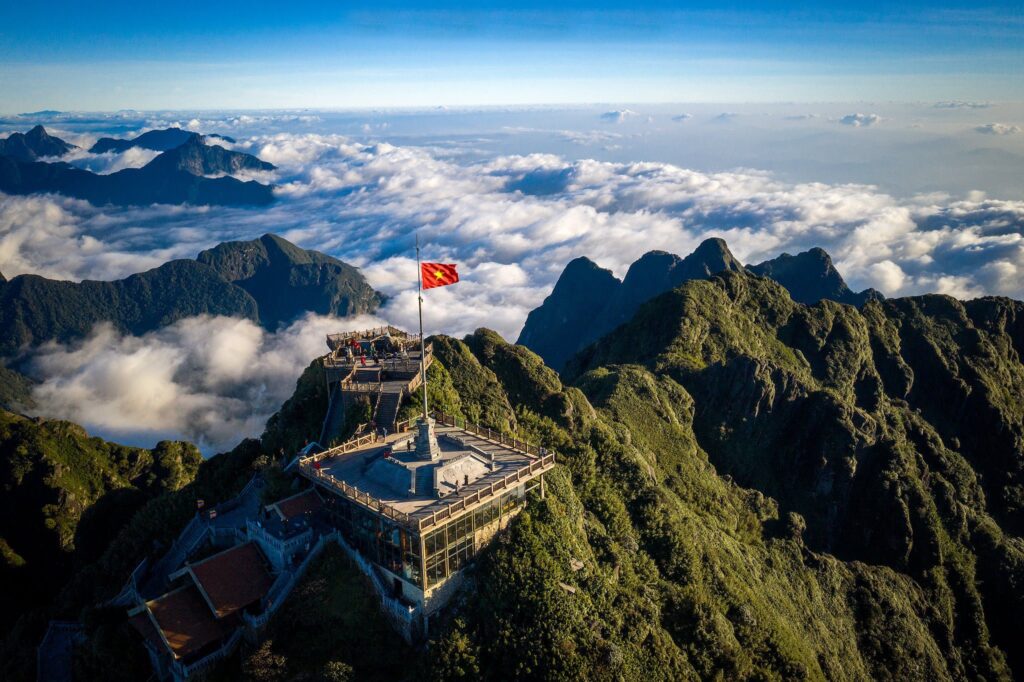
Why Choose Trekking in Sapa?
Dramatic Landscapes and Scenic Trails
Sapa lies in the Lào Cai Province of northern Vietnam, nestled at around 1,500 meters above sea level. Surrounded by the Hoàng Liên Son mountains, the region features some of the country’s most stunning natural scenery: layered rice terraces, pine forests, waterfalls, and foggy mountain peaks that touch the sky.
Sapa is also home to Fansipan, the highest mountain in Indochina at 3,143 meters, making it a prime destination for both casual walkers and hardcore trekkers alike.
Authentic Cultural Encounters
What truly sets trekking in Sapa apart from other hiking destinations in Asia is its cultural richness. The area is inhabited by several ethnic minority groups such as the H’mong, Red Dao, Tay, and Giay, who continue to live in traditional villages with distinct customs, clothing, and languages.
Trekking through these villages allows you to experience Vietnam from a deeply human perspective—sharing a cup of tea with a local family, watching artisans dye indigo cloth, or listening to stories told by a Red Dao elder by the fire.
A Range of Trekking Options
Whether you’re seeking a short scenic hike or a full-blown multi-day adventure, Sapa has something for everyone. From well-traveled routes like Cat Cat and Ta Van to more secluded trails in the Nam Cang Valley, the region offers a wide variety of terrain, difficulty levels, and cultural immersion.
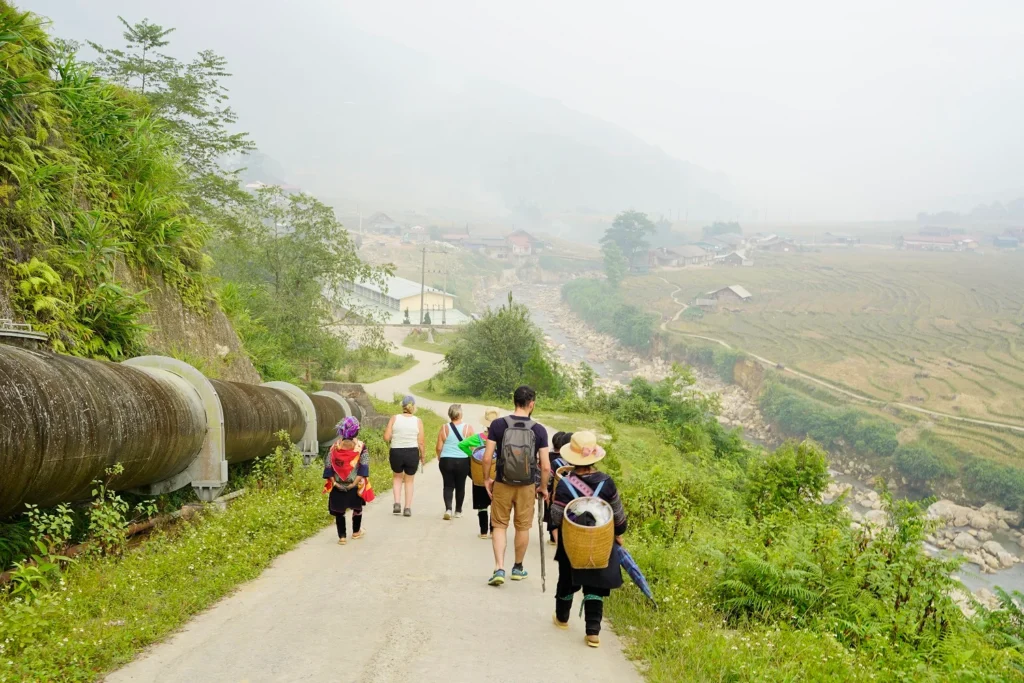
Featured Itinerary: 2 Days Trekking in Sapa
One of the most recommended experiences for trekking in Sapa is the 2-day, 1-night adventure, an eco-conscious mountain resort perched on a remote hilltop offering sweeping views of the Muong Hoa Valley. This itinerary strikes the perfect balance between comfort and adventure, with local guides, curated trekking routes, and a deep dive into village life.
📅 Day 1: Hanoi to Sapa+ Afternoon Village Trek
6:30–7:00 AM:
You’ll start the journey with a comfortable ride from Hanoi to Sapa, a luxury minivan that takes around 5 hours. Along the way, you’ll pass through Vietnam’s ever-changing northern landscape.
12:00 PM:
Arrival at Sapa, where you’ll check in to your private bungalow. Built using local white granite and wood, these charming lodges blend seamlessly into the landscape, offering unmatched views from your own balcony.
Afternoon Trek:
After lunch, you’ll set off on a guided 3-hour hike to Lech Village, home to the Red Dao ethnic group. Along the way, enjoy panoramic views of cascading rice terraces and forested valleys. The path is moderate and follows small dirt trails used by locals.
Highlights include:
- Visiting a traditional Red Dao wooden home
- Learning about local herbal medicine and embroidery
- Discovering the unique Red Dao customs such as their distinctive red headdresses and facial tattoos
Evening:
Return to Sapa by sunset and enjoy a peaceful evening with the option to soak in the herbal bath at Rice Spa or simply stargaze from your bungalow.
- Trekking Level: Easy
- Duration: 2.5 – 3 hours
- Elevation Gain: Moderate
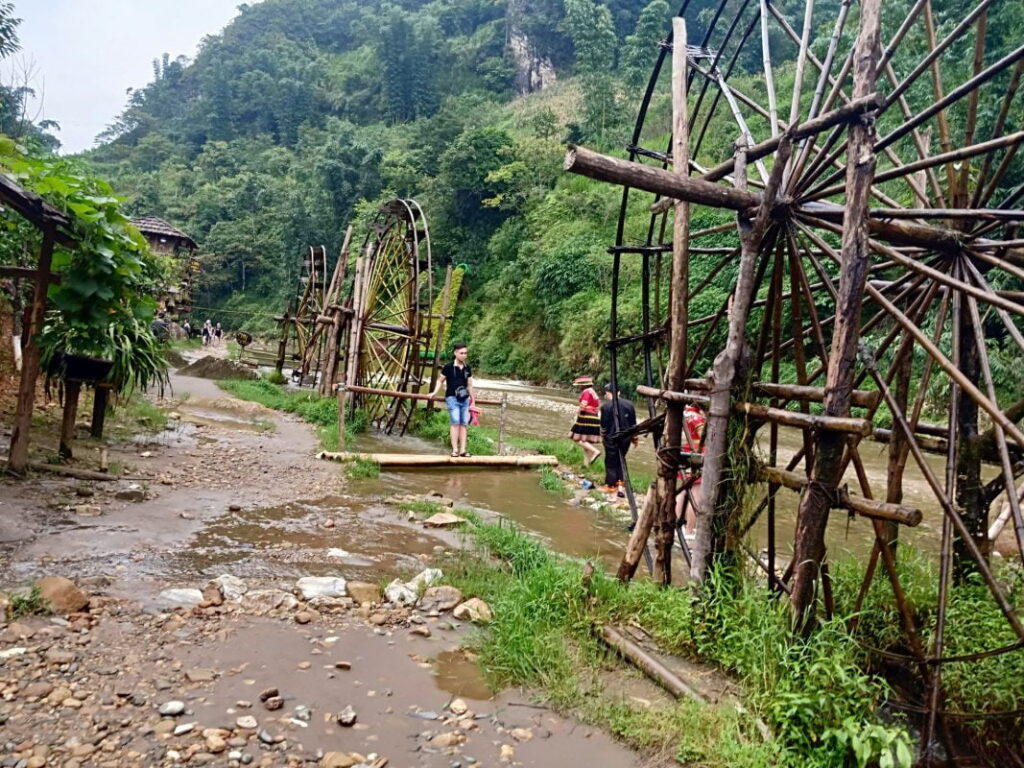
📅 Day 2: Deep Trekking Through Nam Nhiu & Nam Cang Villages
8:30 AM:
Fuel up with a hearty breakfast and prepare for a more immersive trek into the Hoàng Liên National Park. The day’s journey begins near Sin Chai village, taking you deeper into the lesser-known Nam Cang Valley.
Mid-Morning:
Trek through ancient forests, bamboo groves, and peaceful valleys. Stop at Nam Nhiu, a remote village untouched by mass tourism. Here, you’ll meet local families, see daily agricultural life, and learn about traditional silver jewelry making and textile weaving.
Lunch by the River in Nam Cang:
After a few more kilometers of trekking, you’ll arrive at Nam Cang Village, one of the most isolated Red Dao communities in the region. Lunch is served at a cozy riverside lodge with freshly grilled mountain specialties and local vegetables.
Afternoon:
Enjoy a short cultural tour through the village before heading back to the transfer point. You’ll return to Hanoi in the early evening, carrying not just beautiful photos, but a genuine connection to a world far from modern chaos.
- Trekking Level: Moderate
- Duration: 3 – 3.5 hours
- Distance: 8–10 km
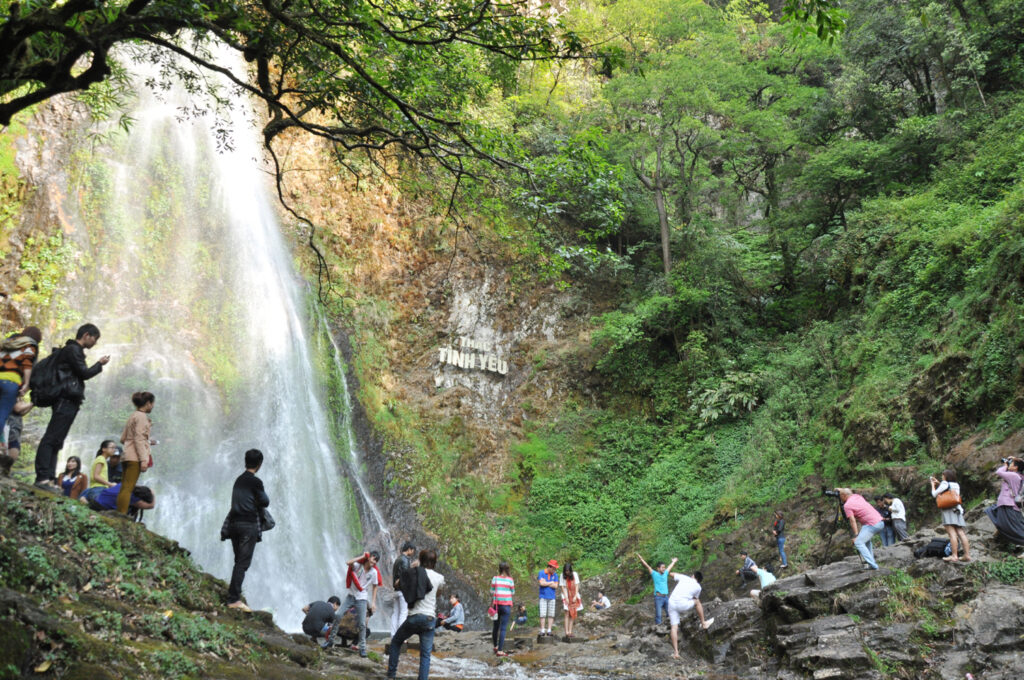
Where to Stay Topas Ecolodge
If you’re trekking in Sapa and want to escape the crowds, Topas Ecolodge is the perfect base. It’s internationally recognized as one of the most sustainable resorts in the world by National Geographic, offering:
- Eco-friendly bungalows with panoramic mountain views
- Saltwater infinity pool perched above rice terraces
- Organic cuisine and locally sourced menus
- On-site spa using traditional Red Dao remedies
The lodge also partners directly with local ethnic minorities, ensuring that your trip benefits the communities you visit.
Other Popular Trekking Routes in Sapa
| Route | Difficulty | Duration | Highlights |
| Cat Cat – Y Linh Ho – Lao Chai – Ta Van | Easy | Half-Day to Full-Day | H’mong villages, terraced fields |
| Sapa – Su Pan – Ban Ho | Moderate | 1-2 Days | Bamboo forests, waterfall, Tay ethnic group |
| Fansipan Trek | Difficult | 2–3 Days | Summit of Indochina, camping |
| Ta Giang Phinh | Moderate | 1 Day | Less touristy, authentic H’mong culture |
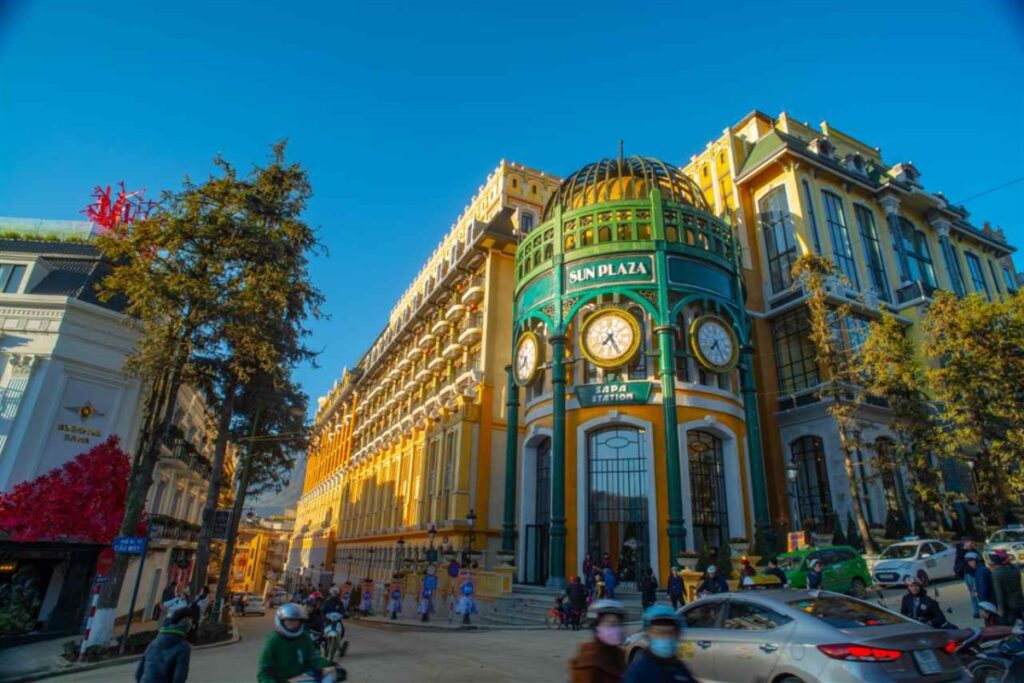
Best Time for Trekking in Sapa
- March – May (Spring): Clear skies, mild temperatures, blooming flowers
- September – November (Autumn): Golden rice fields, dry trails, pleasant weather
- Avoid: June–August (rainy season) and December–February (cold and foggy)
What to Pack for Trekking in Sapa
- Hiking boots with strong grip
- Breathable layers and a rain jacket
- Hat, sunglasses, and sunscreen
- Refillable water bottle
- Personal medical kit (altitude meds, insect repellent, etc.)
- Small daypack for essentials
- Camera or phone for epic shots!
Responsible Trekking Tips
- Always go with a local guide or tour operator for hiking trails in Sapa
- Avoid single-use plastic; bring reusable bottles
- Respect local customs and ask before taking photos
- Support local businesses by buying handicrafts or food
- Leave no trace—take your trash with you
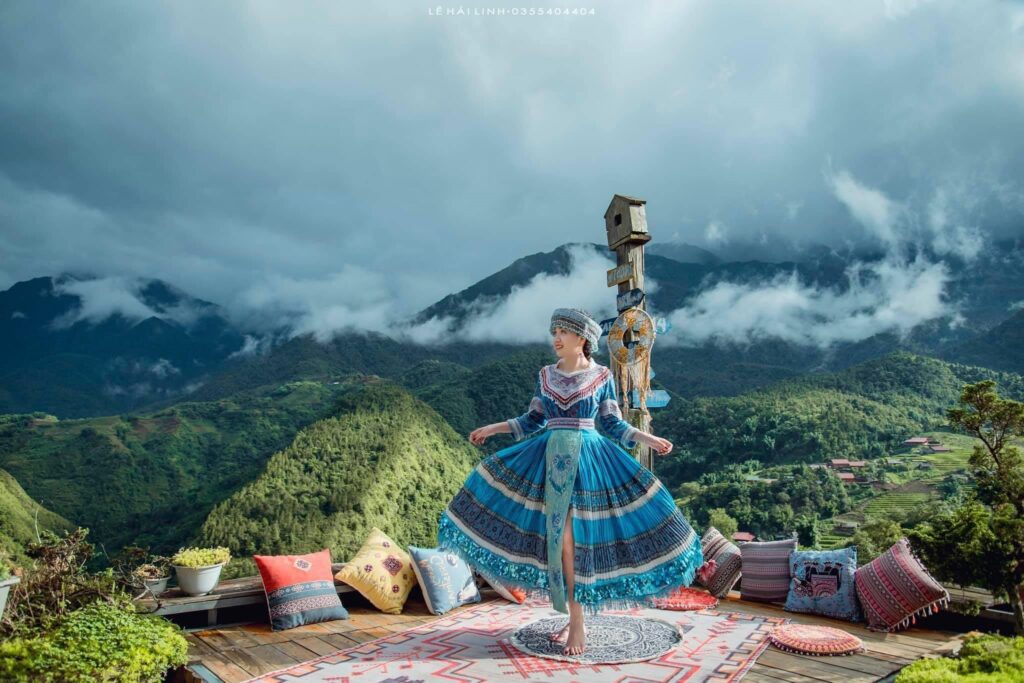
Trekking in Sapa Is More Than a Hike
Trekking in Sapa is not just about walking through stunning landscapes—it’s a cultural, spiritual, and emotional journey. Whether you’re traversing mist-covered hills, watching children run along narrow trails, or sipping herbal tea in a Red Dao home, every moment is deeply immersive and unforgettable.
If you want a curated experience that blends eco-conscious travel, authentic local culture, and physical adventure, then the 2-day trekking tour with VietnamTour is the perfect entry point. It’s slow travel at its best—where the destination is just as beautiful as the journey.
See more post: Vietnam Culture Immersion: A Journey Into the Heart of Tradition

